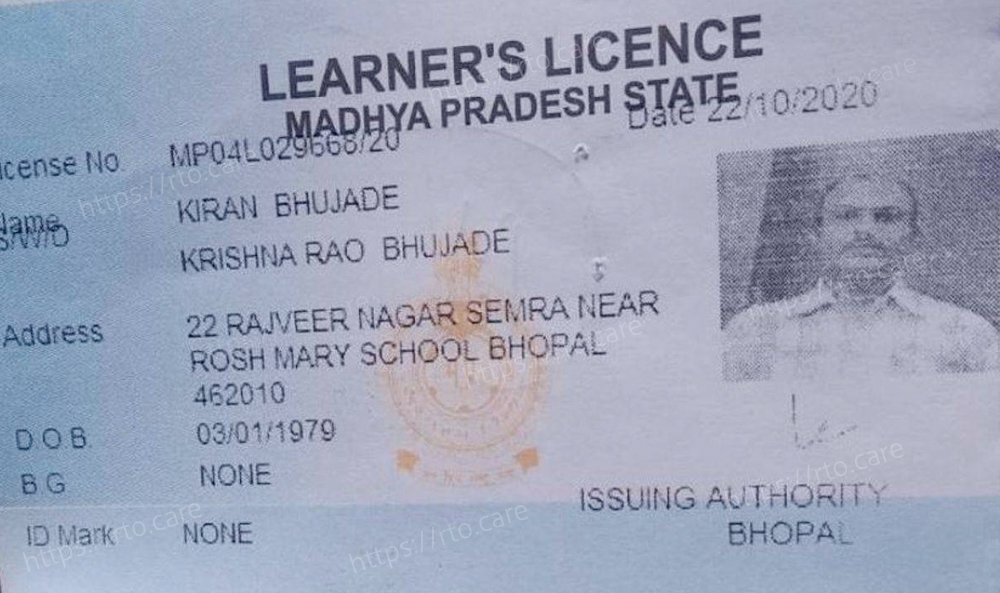Knowing how to operate a motor vehicle, like swimming and riding a bicycle, has become a life skill in recent years. According to the Motor Vehicle Act of 1988, a citizen may not operate a motor vehicle on a public road unless he or she has a valid driver's licence. But what if you're only learning the fundamentals of driving a vehicle or a two-wheeler? Beginners in India must have a valid Learner's Licence (LLR) to practise driving motor vehicles on public roads, unless they are supervised by a permanent driving licence holder. Continue reading to learn more about how to apply online for a Learner's Licence in India and other Learner's Licence know-how.
In India, an overview of the Learners Licence is provided.
A valid Driving Licence is required to legally drive a car on Indian roadways. Obtaining a Learner's Licence is the first step in obtaining a Driving Licence in India. A Learner's Licence is a document issued by the relevant state Regional Transport Office (RTO) and Regional Transport Authority (RTO) that serves as both a temporary and limited licence. To obtain a Learner's licence, one must be conversant with road sense and laws.
In India, a learner's licence is awarded to an applicant who passes a written or online test that assesses his understanding of traffic laws. Following the issuance of a Learner's Licence, you will be permitted to practise driving on public roads as long as you are accompanied by a person who possesses a permanent Driving Licence. Before you may gain a Driving Licence, you must first get a Learner's Licence for the relevant class of vehicle.
In India, there are many types of learner'slicenses.
In India, driving licences and learner's permits are issued based on the kind of motor vehicle. The qualifying conditions differ depending on the vehicle class. Here are a few examples of the most prevalent types of cars.
| Types of Learner's licenses | ||
|---|---|---|
| Category of Use | License Class | Vehicle Type |
| Personal use | MC 50CC (Motorcycle 50 cc) | Motorcycles with engine capacity of 50 cc or less than 50 cc |
| LMV - NT | A light motor vehicle is a vehicle that is used for purposes other than transportation | |
| FVG | Motorcycles with any engine size but no gears, such as scooters and mopeds | |
| MC EX50CC | Motorcycles with a capacity of 50 CC or more/motorcycles with gear/Light Motor Vehicles (LMVs) including cars | |
| MCWG or M / CYCL.WG | All types of Motorcycles including Motorcycle with gear | |
| Commercial Use | HGMV | Heavy Goods Motor Vehicle |
| LMV - TR | Light Motor Vehicle used for commercial purposes | |
| HPMV | All India driving permit for trucks and cars or open licence / Heavy Passenger Motor Vehicle | |
| LMV - NT | Light Motor Vehicle for non transport purposes | |
Eligibility in India for a Learners Licence
The qualifying conditions for a Learning Licence vary depending on the class of motor vehicle and the type of learner's licence desired. The eligibility requirements for the various types of Learner's Licences available in India are shown below.
| Eligibility in India for a Learners Licence | |
|---|---|
| Type of Learner's Licence | Eligibility Criteria |
| Motorcycles with gear | The candidate must be aged at least 18 years. |
| Motorcycles without gear with up to 50 cc capacity | The applicant must be at least 16 years old. Candidates under the age of 18 must receive permission from a guardian or parent. |
| General Requirement for obtaining a Learner's Licence | The applicant for a Learner's Licence must be at least 18 years old and familiar with traffic laws and regulations. The candidate must provide genuine residence and age proof documentation. |
| Commercial Heavy Vehicles and Transport Vehicles | The candidate must have completed the eighth grade. The candidate must be over the age of 18. Some states mandate a minimum age of 20 years. |
Here are some of the reasons why a Learner's Licence is required in India.
- To learn to drive a motor vehicle, you must first get a Learner's Licence for that vehicle class. A Learner's Licence legally permits you to practise driving on Indian roads with an experienced instructor or driver.
- You can practise driving with a permanent Driving Licence holder if you have a valid Learner's License. This will assist you in honing your driving abilities before you take your vehicle out on the road.
- Obtaining a Driving Licence is a prerequisite for obtaining a Driving Licence. If you have a valid Learner's Licence, it is simple to apply for and obtain a permanent Driving License.
- Holding a Learner's Licence and practicing on roads can help you get familiar with road laws, which will benefit you when driving.










